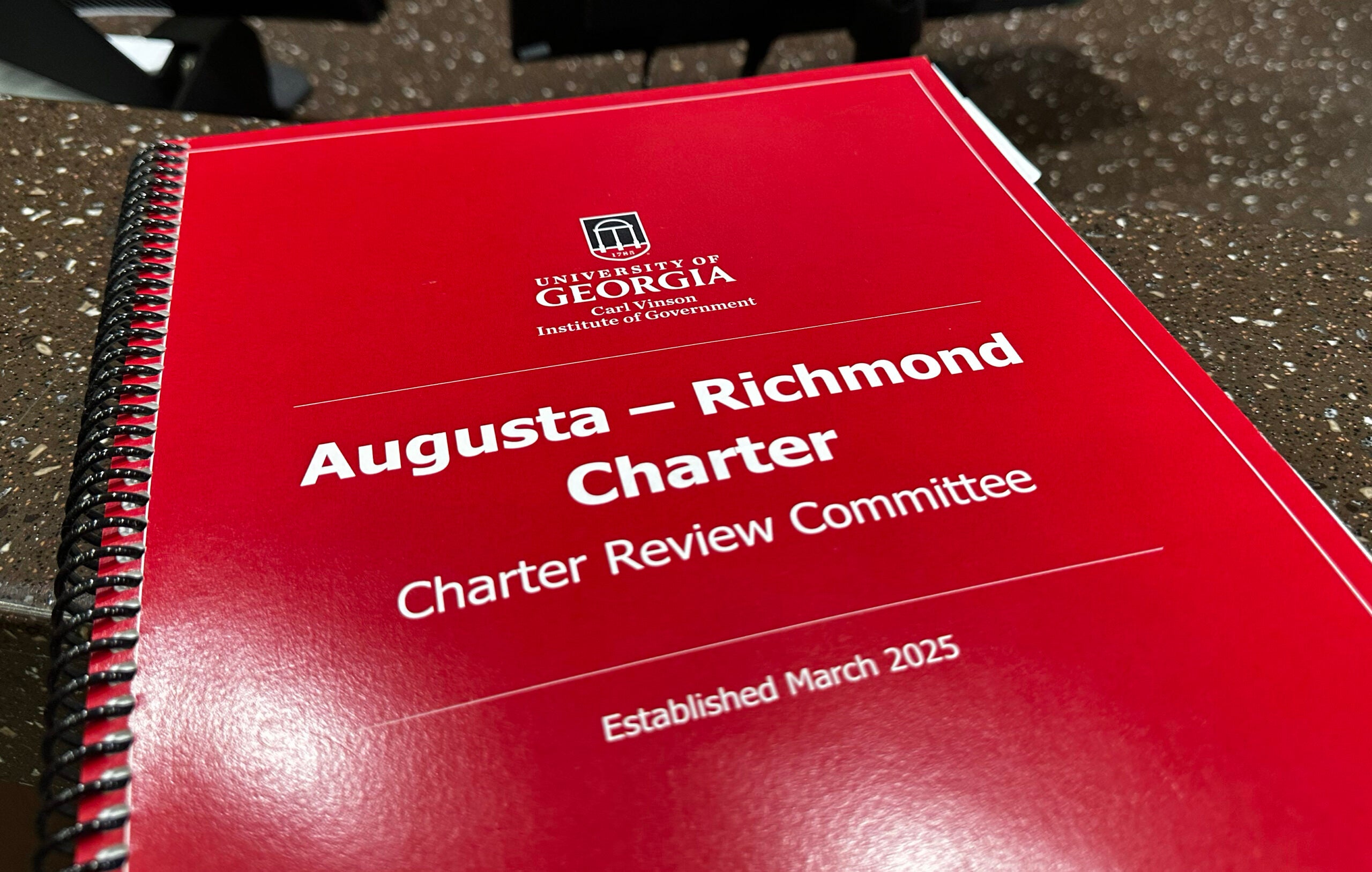Augusta’s Charter Review Committee is set to hear today about a topic popular with committee members as well the general Augusta-area public: Municipal corruption.
While discussion is limited to a Zoom call, the committee will hear from Kim Nelson, a University of North Carolina professor of public administration and government. Nelson is slated to present an analysis of “corruption in local governments.”
Nelson has written extensively about the connection between a city’s form of government and the prevalence of corruption. She’s included in her written analysis case studies of cities rocked by government corruption scandals such as Jacksonville, New Orleans and Bell, Calif.
Choosing Augusta’s form of government is one of the tasks the Charter Review Committee has taken on. Augusta’s form currently resembles the council-manager form, but with a mayor elected countywide and an administrator rather than a manager.
The committee subcommittee on form of government meets at 1:30 p.m. at Augusta Municipal Building. The committee’s regular meeting when Nelson will speak, starts at 10 a.m.
In two writings, Nelson emphasized findings that the council-manager form has less of a propensity for corruption. She says this is in part due to having a professional manager both sworn to ethical standards and skilled in implementing measures to guard against corruption. Managers are incentivized to keep their jobs by attaining professional goals, rather than winning elections, she’s said.
By contrast, a government led by a more powerful mayor is more prone to corruption, she said. The mayor’s autonomy and lack of professional training provides greater opportunities to obtain illegal rewards, while councils rarely have much say over mayors and vice versa. However, mayors who are elected at-large by the entire county are less likely to be corrupt than mayors chosen by councils, she’s said.
In addition, when a mayor appoints a manager, the manager is likely to be more beholden to the mayor than the council, reducing checks on the mayor’s and manager’s authority.
Other characteristics of governments with less corruption include having strong local media, which is rapidly declining, transparency in government and a population able to detect corruption and willing to speak out against it, she said.
Nelson wrote that Southern states have both a greater incidence of corruption and a greater tolerance for it.
Other agenda items
On today’s form of government agendas are three queries about the position of “administrator/manager.” They include a comparison of the two roles, having the manager report only to the mayor, requiring the administrator/manager perform annual performance review of department heads and how to remove the person in the role.
Also listed on the agenda are discussion of super districts, nonpartisan versus partisan elections and the frequency charter reviews are needed.
Augusta’s system of two super districts, with two commissioners elected at-large from four regular districts each, is the same as used by the Richmond County Board of Education but is otherwise somewhat uncommon. While few local governments contain “super districts” with members elected at large from multiple districts, Columbus-Muscogee has six at-large council seats elected by the entire county. Athens-Clarke has none.
All of Georgia’s seven consolidated governments conduct nonpartisan elections. In other states, consolidated city-counties such as Nashville, Louisville and Jacksonville conduct partisan primaries and elections.
On the full committee agenda are a review of community survey results and votes on “generalized edits” and a “boundary map” for the charter. The agenda, posted minutes before deadline, included no backup materials.










